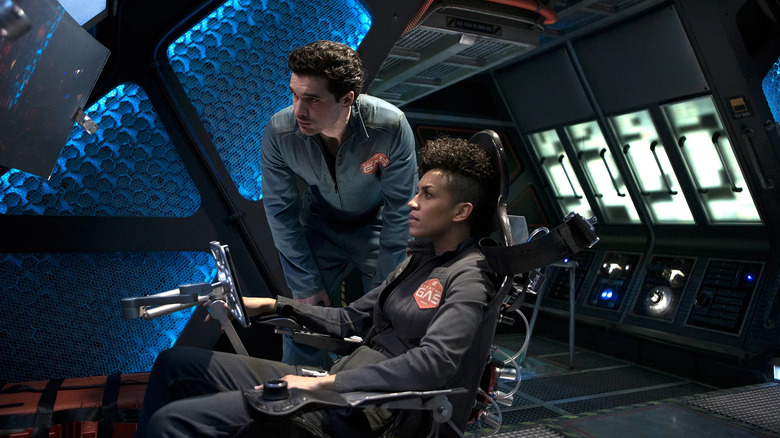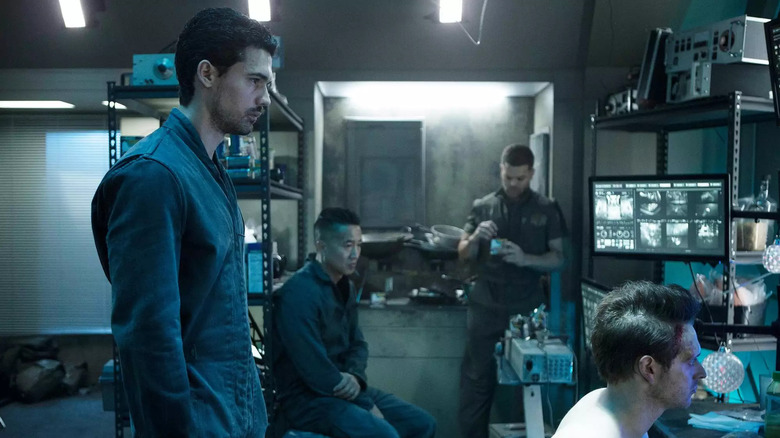The Expanse Showrunner Was Against The Books' Authors Writing The Show
For fans of "The Expanse" book series, one of the most surprising things to notice upon starting the show is the different structure. Whereas "Game of Thrones" was fairly straightforward at first (season 1 covered book 1, just as season 2 covered book 2), the debut season of "The Expanse" combined a lot of books 1 and 2, while saving parts of book 1 for season 2.
That might sound confusing, but it makes sense. The first book in the series, "Leviathan Wakes," is surprisingly small-scale; it centers around only two major point-of-view characters, an outlier from the rest of the series. The second book is when the number of POV characters jumps up to four, which is much more representative of the series' general format. The books also have a tendency to drop its non-Holden point-of-view characters after each book, even if they're still alive, another storytelling approach that's a little more awkward in a TV show than it'd be in a book series.
This is part of why showrunner Naren Shankar was initially hesitant to have the books' authors involved with the writing of the show. "I was initially quite against it!" he explained in a 2022 interview with Comic Book Resources. "I had done adaptations before and authors can be precious, and not knowing [Ty Franck and Daniel Abraham] at that time, it could be a minefield." Considering how defensive regular fans can get when their favorite books are changed dramatically in adaptations, it's easy to see how Shankar would worry about James S. A. Corey (the pen name shared by co-authors Abraham and Franck) getting too protective over their material in the show's writers' room.
Luckily, no cause for alarm
It turns out, however, that Franck and Abraham did not have the negative reactions Shankar had feared. "They were very open to it and got it. It was evident extremely quickly that these guys were going to be really good collaborators and they did understand the need," he said. "What I learned was that Ty [Franck] and Daniel [Abraham] are really meticulous plotters: something that seems like nothing happens pays off two books later in a very significant way. It ended up being such a really great experience of having the authors adapt their own work to a different medium."
The result was a show that never quite became a massive hit, but still got to adapt the first six books on its own terms, without any of the chaos that occurred with the "Game of Thrones' final seasons. Admittedly, they didn't get to adapt the entire 9-book series — maybe they will in 30 years when the actors age along with the books' time jump — but they gave us six seasons of consistently strong storytelling, with stakes that gradually rose without ever getting too high to effectively pay off. Shankar credits a lot of this to the authors' willingness to let him make changes to better fit the medium of TV, while still always staying true to the books' spirit. As he explained:
"We never changed the big framework of the plot, we stayed true to it but got to it in a slightly different fashion ... We just wanted to keep funneling as much drama as possible into the core cast. In the novel, it's okay if you break into certain perspective characters or introduce them along the line, but for the purpose of the show, that's what we tried to do."

